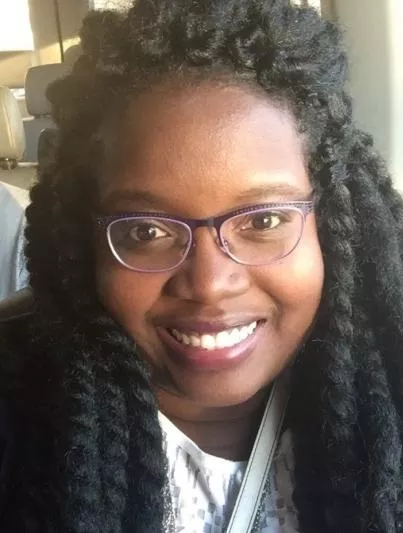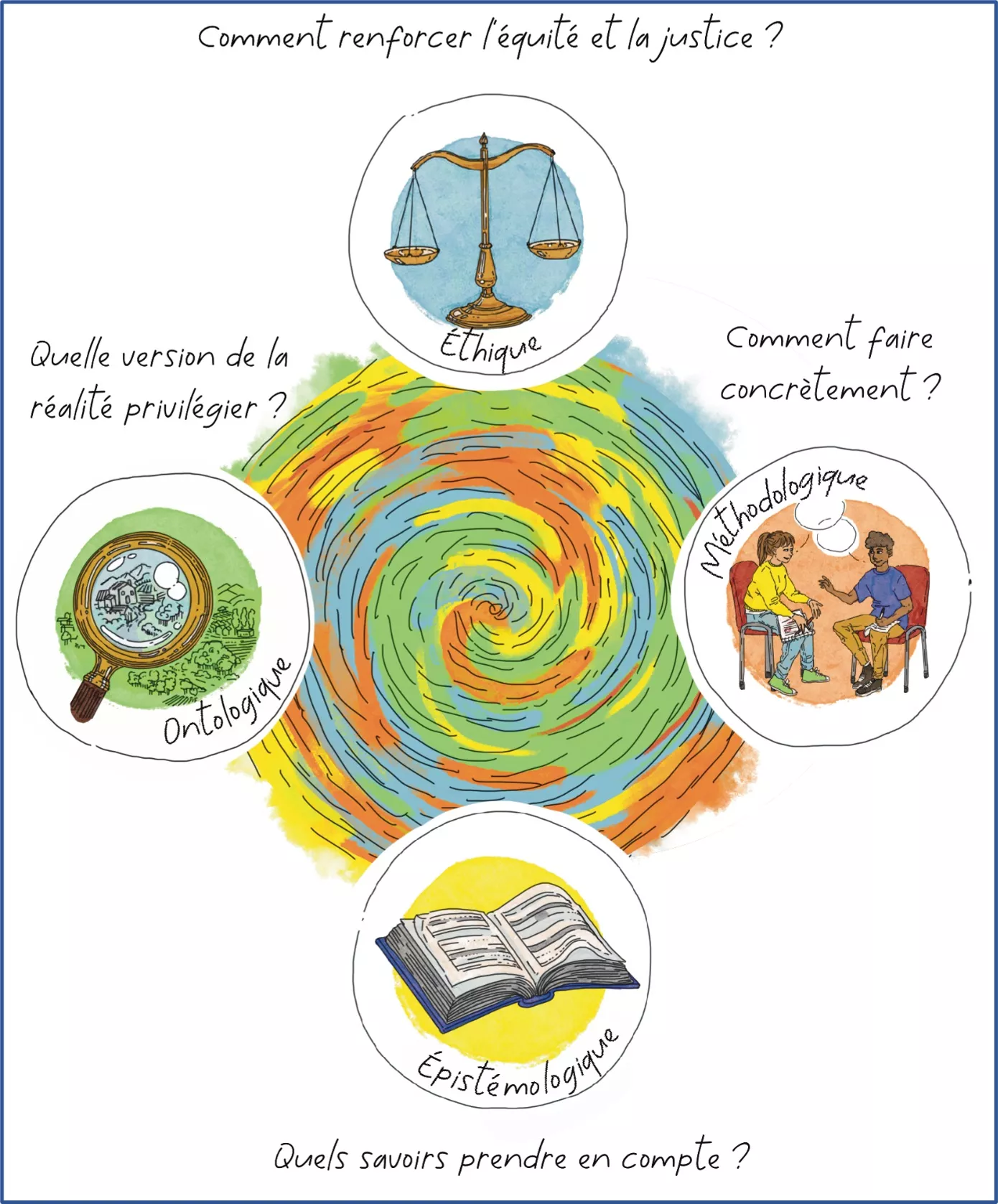
Tamarah Moss, assistant professor of social work and social research, traveled to Paris, France, in December to take part in the 2021 F3E Network Meeting: Contribute Together for Social Change: Sowing Seeds for Change.
Moss’ presentation on transformation and inclusion in evaluation drew from research accomplished in partnership with her mentor, Donna M. Mertens of Gallaudet University. The pair are co-authors of the chapter “Transformative Evaluation for Lasting and Just Social Change,” set to appear in the upcoming book Inclusion for Transformation.
The F3E is an international learning network for evaluation methods whose mission is to stimulate improvement in practices and assist organizations in a complex and changing environment. The F3E brings together French member organizations, including nonprofit organizations, government agencies, and workers’ rights groups to work collectively for social change in France and internationally.
Moss began her work with F3E while a scholar under mentor Mertens' advisement in the Leaders in Equitable Evaluation and Diversity (LEEAD) Program. Following their LEEAD program experience, Moss and Mertens co-published an American Evaluation Association blog post about lessons they learned, "Expanding the Bench Week: A Mentor and Protégé Model: Strengthening Transformative Culturally Responsive Evaluation through Forming a Mutually Beneficial Relationship."
While in Paris, Moss collaborated with fellow F3E members who are contributing to social change. She participated in a well-received roundtable on inclusion and diversity in evaluation practices titled "Inclusion for Evaluation," introduced by Claire de Rasilly, coordinator of regional development at F3E, and moderated by Anna Maheu, director of communication at La Fonda. Moss' fellow panelists included director at BATIK International Sarahi Guttierez and Eval4Change's Arnaud Laaban.
Moss’s roundtable presentation included a list of three good practices/seeds for change in evaluation:
- Engage in Donna M. Mertens’ “Transformative Evaluation” approach, which includes six principles: the importance of respecting culture, promotion of social justice, promotion of human rights, addressing inequalities, exercising reciprocity between stakeholders, and the importance of community resilience and strength.
- Support “Culturally Responsive and Equitable Evaluation” with its emphasis on cultural context and the impact of inequalities within systems and structures in the lives of communities.
- Implement a “Reflective Practice,” commonly utilized in social work practice and education, translating it for evaluators to be able to assess their own positionality and the extent to which intersectional identities facilitate growth or present barriers for communities and organizations.
A recording of the presentation in French is available online. The English version will likely be available by spring 2022.
Throughout the network meeting, Moss and colleagues examined issues of inequalities related to gender, ethnicity, race and ethnicity, poverty, and the role of evaluators as agents of inclusion and transformation for communities and organizations beyond and across borders.
“We must engage communities in the process of change,” says Moss. “The work must be both for communities and with communities.”
Moss, who holds the Alexandra Grange Hawkins Lectureship in Social Work, plans to donate both French and English versions of Inclusion for Transformation to Canaday Library, where it will be accessible in hardcopy for students, faculty, and staff.
The GSSWSR prepares students to become effective social work practitioners, advocates for social and economic justice, and leaders in the social work profession. Students learn about work with individuals, families and groups, as well as social work with organizations and communities. Students learn a holistic approach to social work practice with an emphasis on the importance of diversity and inclusion. GSSWSR's accredited program awards a Master of Social Service (M.S.S.) degree, which is equivalent to an M.S.W. For more information, contact the school at 610-520-2600 or socialwork@brynmawr.edu.
